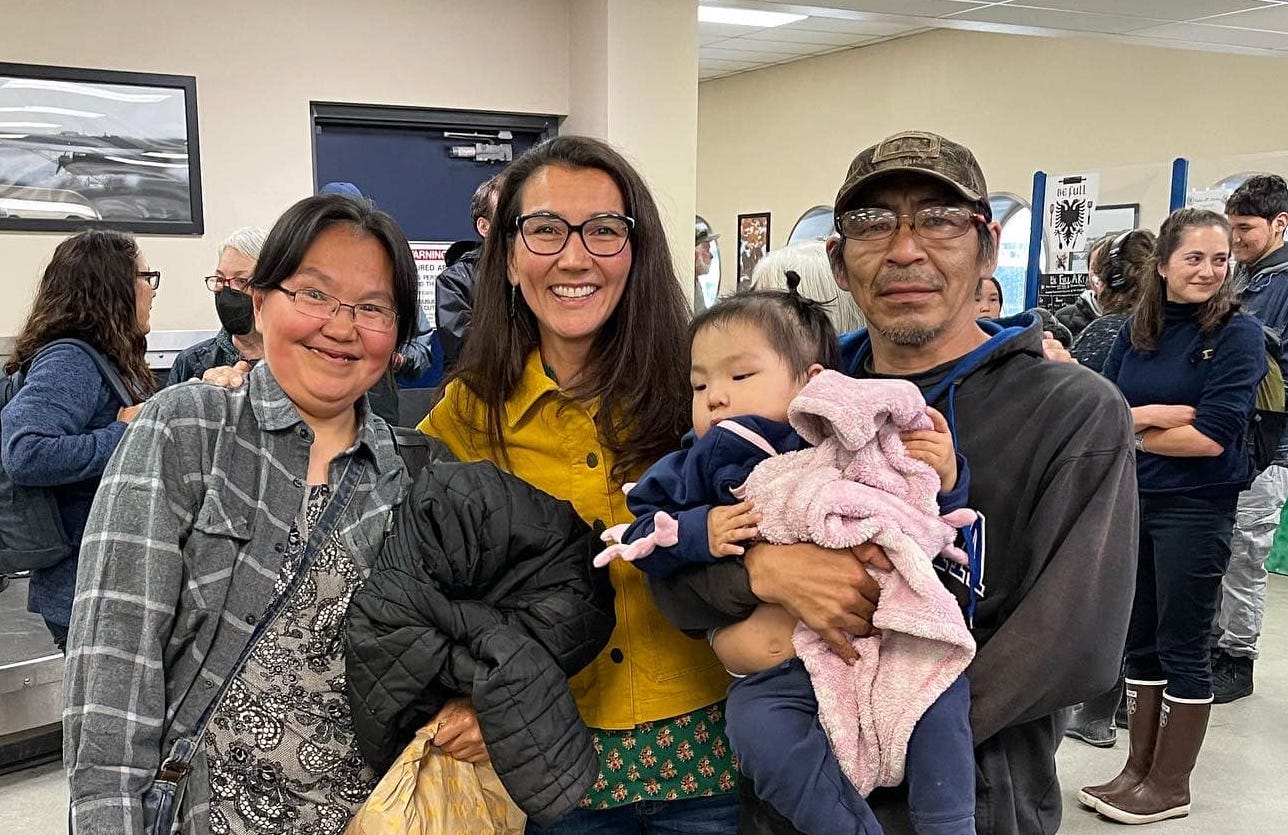Congresswoman-elect Mary Peltola doesn't mind being seen as the underdog
Salmon time! Indigenous Wire's exclusive interview with the first Alaska Native elected to U.S. Congress.

WASHINGTON — Congresswoman-elect Mary Peltola (D-AK), a Yup’ik citizen from western rural Alaska, became the first Alaska Native elected to U.S. Congress on Au…
Keep reading with a 7-day free trial
Subscribe to Indigenous Wire to keep reading this post and get 7 days of free access to the full post archives.

